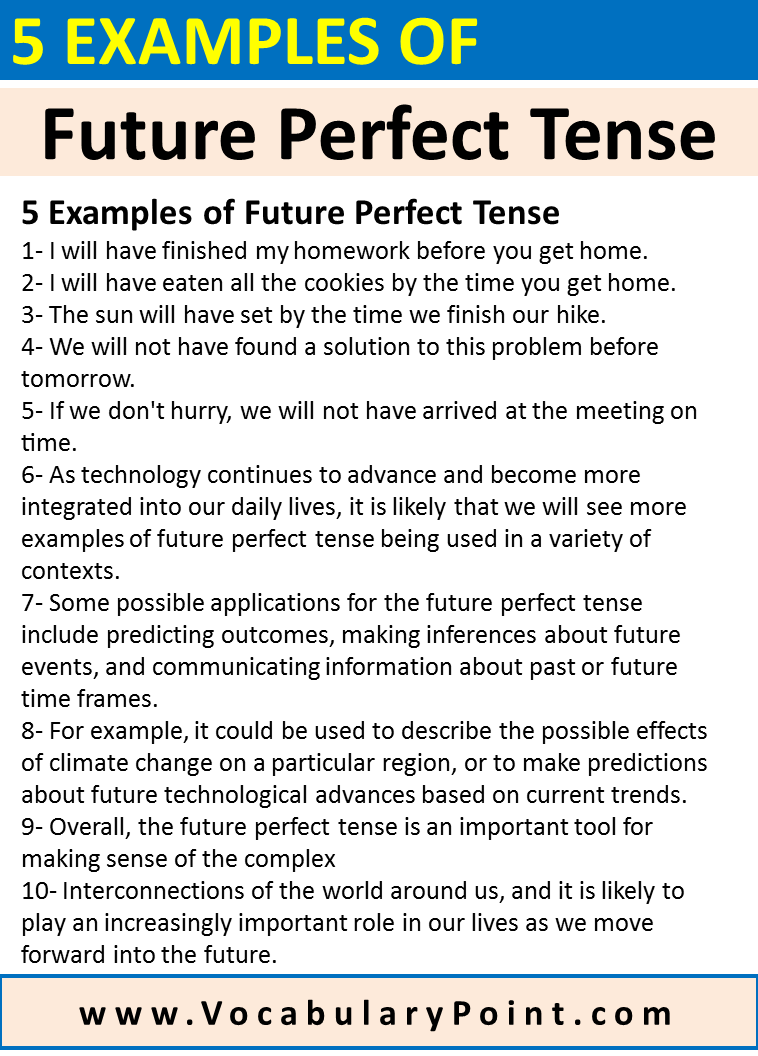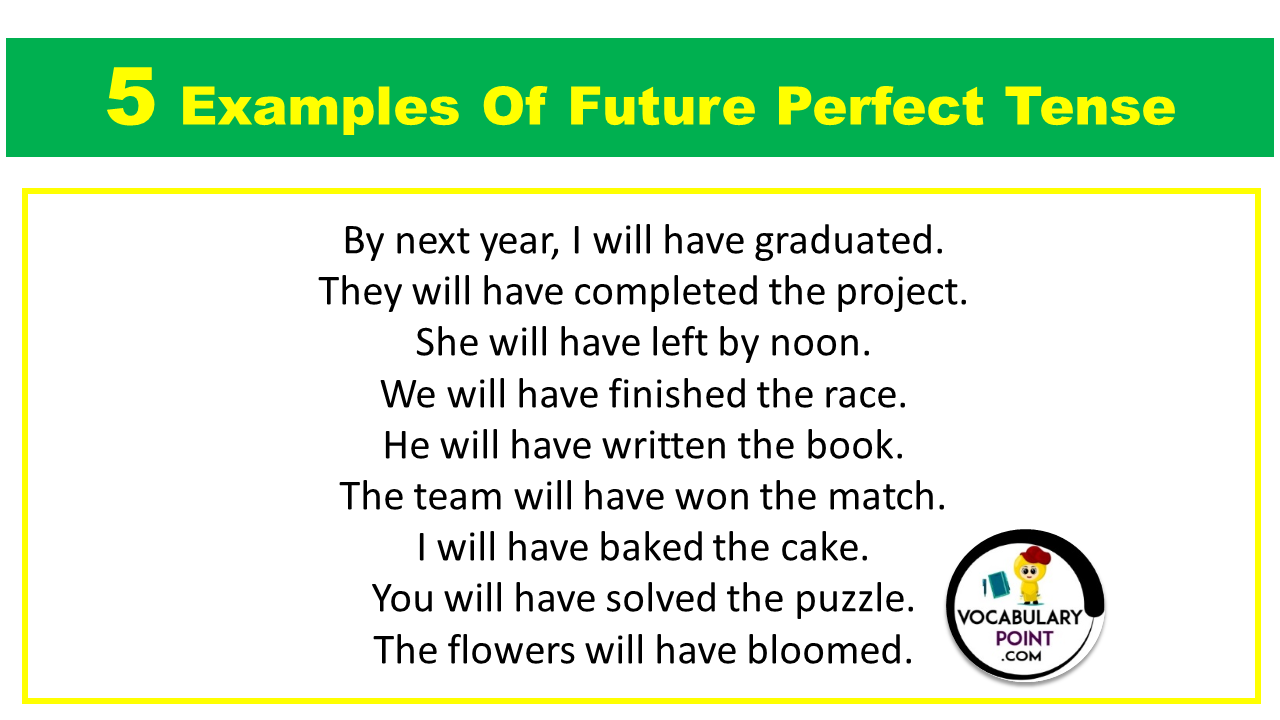As we navigate through the evolving landscape of the English language, it becomes increasingly fascinating to explore the various tenses and their implications for our communication.
One such tense that holds a particular allure is the future perfect tense, offering us a peek into events that will be completed at a specific point in time yet to come. In this article, we will delve into five captivating examples of the future perfect tense, unveiling how this unique grammatical construct can convey precision, anticipation, and inevitability in our expressions.
5 Examples of Future Perfect Tense
- By next year, I will have graduated.
- They will have completed the project.
- She will have left by noon.
- We will have finished the race.
- He will have written the book.
- The team will have won the match.
- I will have baked the cake.
- You will have solved the puzzle.
- The flowers will have bloomed.
- Our dog will have grown bigger.
- The movie will have started.
- They will have painted the house.
- She will have reached Paris.
- We will have saved enough money.
- He will have repaired the car.
- The sun will have set.
- I will have learned Spanish.
- You will have read the novel.
- The storm will have passed.
- The birds will have migrated.Top of Form

- I will have finished my homework before you get home.
- I will have eaten all the cookies by the time you get home.
- The sun will have set by the time we finish our hike.
- We will not have found a solution to this problem before tomorrow.
- If we don’t hurry, we will not have arrived at the meeting on time.
- As technology continues to advance and become more integrated into our daily lives, it is likely that we will see more examples of future perfect tense being used in a variety of contexts.
- Some possible applications for the future perfect tense include predicting outcomes, making inferences about future events, and communicating information about past or future time frames.
- For example, it could be used to describe the possible effects of climate change on a particular region, or to make predictions about future technological advances based on current trends.
- Overall, the future perfect tense is an important tool for making sense of the complex
- Interconnections of the world around us, and it is likely to play an increasingly important role in our lives as we move forward into the future.
